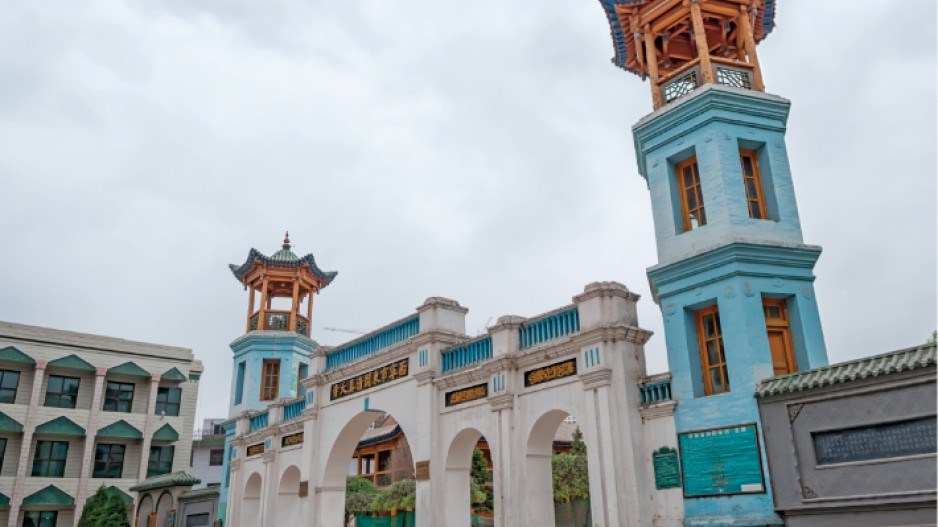It’s hard to find anyone in China who believes that the nationwide crackdown on the country’s massive sex trade industry is simply an extension of President Xi Jinping’s anti-corruption drive and his desire to establish a virtuous society.
Speculation about the real reasons for the campaign ranges from Xi trying to divert attention from China’s intractable economic problems to another round in his efforts to remove his rivals for power.
Since the crackdown began in China’s southern Guangdong province on February 9, social media has been bursting with scorn for the official accounts and brimming with support for the young women and others involved in the sex trade, who have been rounded up in the campaign.
Public skepticism starts with the exposé on the state-owned CCTV television network that led to the crackdown. Reporters used hidden cameras and other paraphernalia of investigative journalism to reveal the extent of the sex trade in Dongguan, a city of seven million people, halfway between Guangzhou and Shenzhen just north of Hong Kong.
Well, no exposé was needed.Dongguan is well known as China’s “sex capital,” as well as being one of the country’s most corrupt cities.
The sex industry there is so pervasive that no hidden cameras are necessary. It is generally reckoned that there are about 300,000 sex trade workers in Dongguan, that about 800,000 people in all have jobs associated with the industry, and that it provides about 10% of the city’s gross domestic product.
If the official account is to be believed, about the only person in Guangdong province who didn’t know about Dongguan’s sex trade was the provincial Communist Party boss, Hu Chunhua. He was, apparently, so shocked when he saw the CCTV program he immediately dispatched 6,000 policemen to clean things up.
The police are reported to have raided about 1,200 establishments ranging from high-end hotels to saunas and karaoke bars.
But there was little to show for all this effort. Only 67 people were arrested and 12 “entertainment establishments” closed down.
Netizens offer a number of explanations for this low catch in a target-rich environment. One, supported by evidence of a very large exodus of men from Dongguan shortly before the raids, is that the police protect and often have a direct financial interest in the sex industry. The police put on a good show, but did not damage their own interests.
The central government’s Ministry of Public Security swiftly adopted the campaign and similar raids were launched in half a dozen other provinces. But as in Dongguan, the results have been less than impressive. Only about 500 people have been arrested and 1,200 establishments shuttered.
This is a less than stellar performance by the police, given the extent of the sex trade that has grown up since the opening up of the economy and loosening of social control that started in the late 1980s.
Travelling around China, it sometimes seems the sex trade engulfs every truck stop and five-star hotel, and all the barber shops, bars and less salubrious hotels in between.
A common judgment among Chinese netizens and observers is that Xi has little confidence in being able to divert the economy from a serious downward trend, marked by high inflation. He knows the much-vaunted program of economic reforms announced in November will come to a swift halt when it collides with the party’s insistence on control.
Xi is therefore trying to bolster the Communist Party’s right to rule by portraying it as the guardian of the Confucian values of honest officials and virtuous women.
In addition, some believe the campaign is also aimed at the former head of the domestic security establishment and one of the seven members of China’s hub of power, the Standing Committee of the Politburo, Zhou Yongkang. Zhou is under investigation for various abuses, and it has emerged that he was the most senior opponent of Xi’s rise to power last year.
The rise of the sex trade on Zhou’s watch may be a useful file to add to the dossier. •
Grappling with hotel/motel time in China
A few years ago when a Canadian working for a major international hotel chain took over management of the company’s establishment in a major Chinese provincial city, he quickly discovered he had a serious problem.
His efforts to upgrade the hotel and attract a better clientele were frustrated by the scores of sex trade workers who, every night, patrolled the hotel’s corridors and hammered on guestroom doors, looking for customers.
The manager had at that point little experience of working in China. Naturally therefore, he went first to the senior officer of the local police and asked for an increased police presence at the hotel.
The officer agreed, but on the condition that the hotel paid for the policemen’s time. Reluctantly, the manager went along with the deal.
Policemen duly turned up at the hotel and patrolled outside and on the ground floor. But the presence of the law had no effect on the number or business enthusiasm of the young women who targeted the manager’s guests every night.
The manager did more research and soon discovered the sex trade workers were organized by a local triad criminal gang.
With patience and determination our Canadian manager finally arranged a meeting with the head of the triad, who, he said, turned out to be a charming Chinese gentleman.
They chatted over tea and the manager explained his problem. The triad boss said he understood the manager’s difficulties and he would ensure the young women did not patrol the guest room corridors so long as they could use the ground floor bar to arrange business.
The manager readily agreed. But there is one more thing, said the triad boss, the manager should carry on paying the police.




